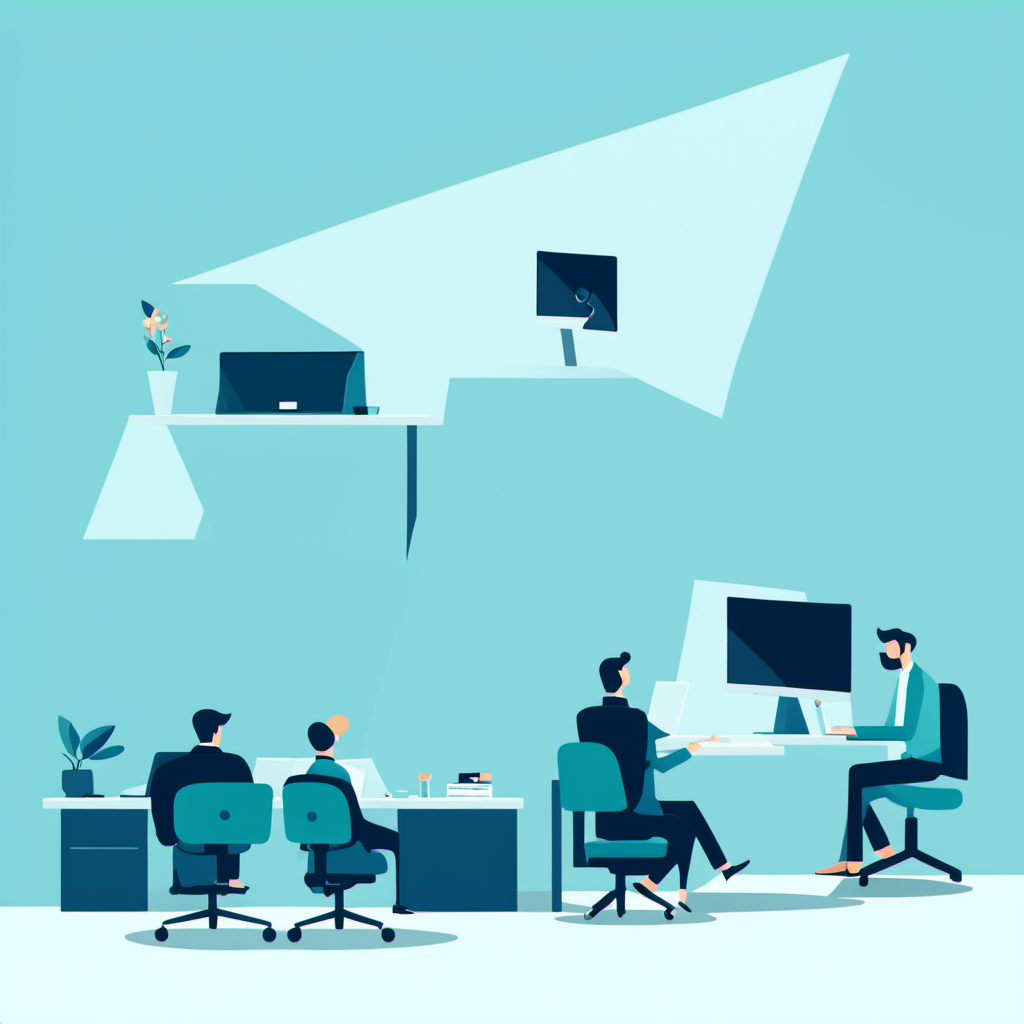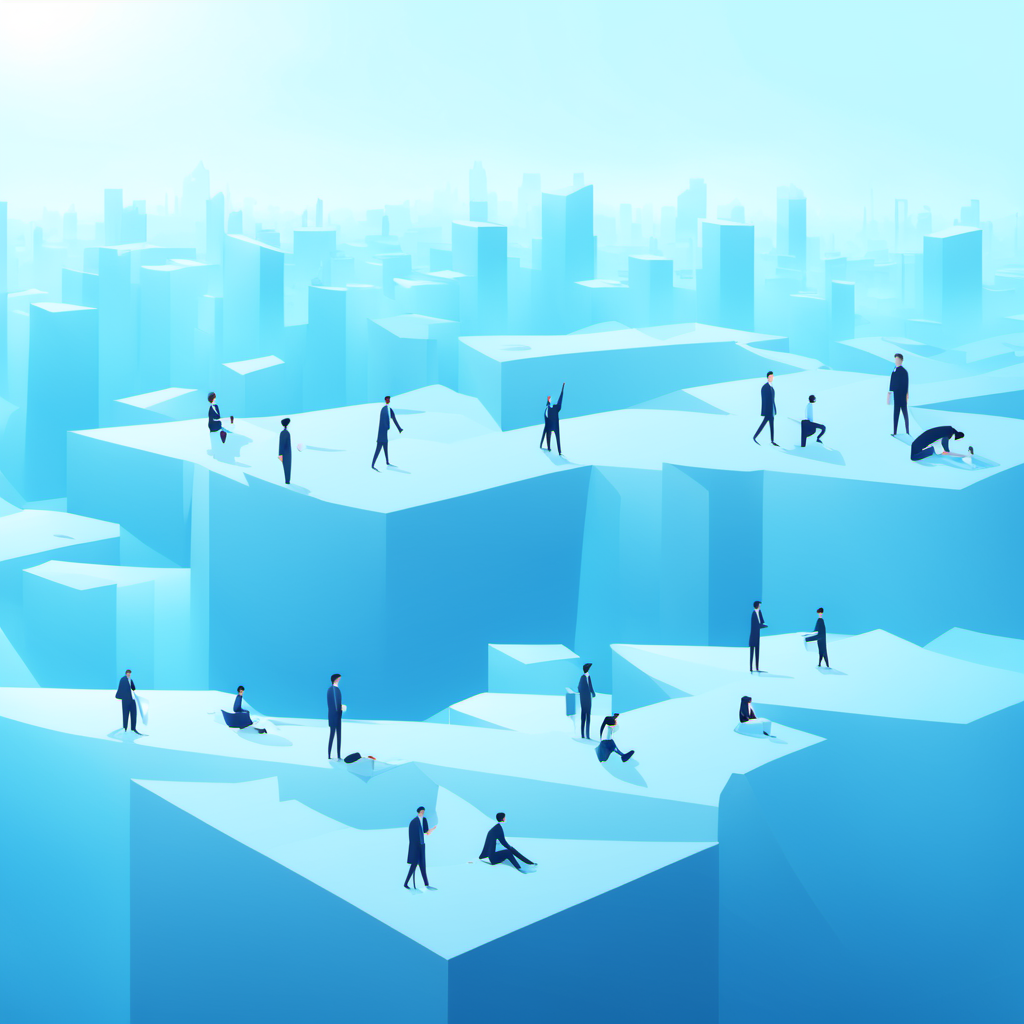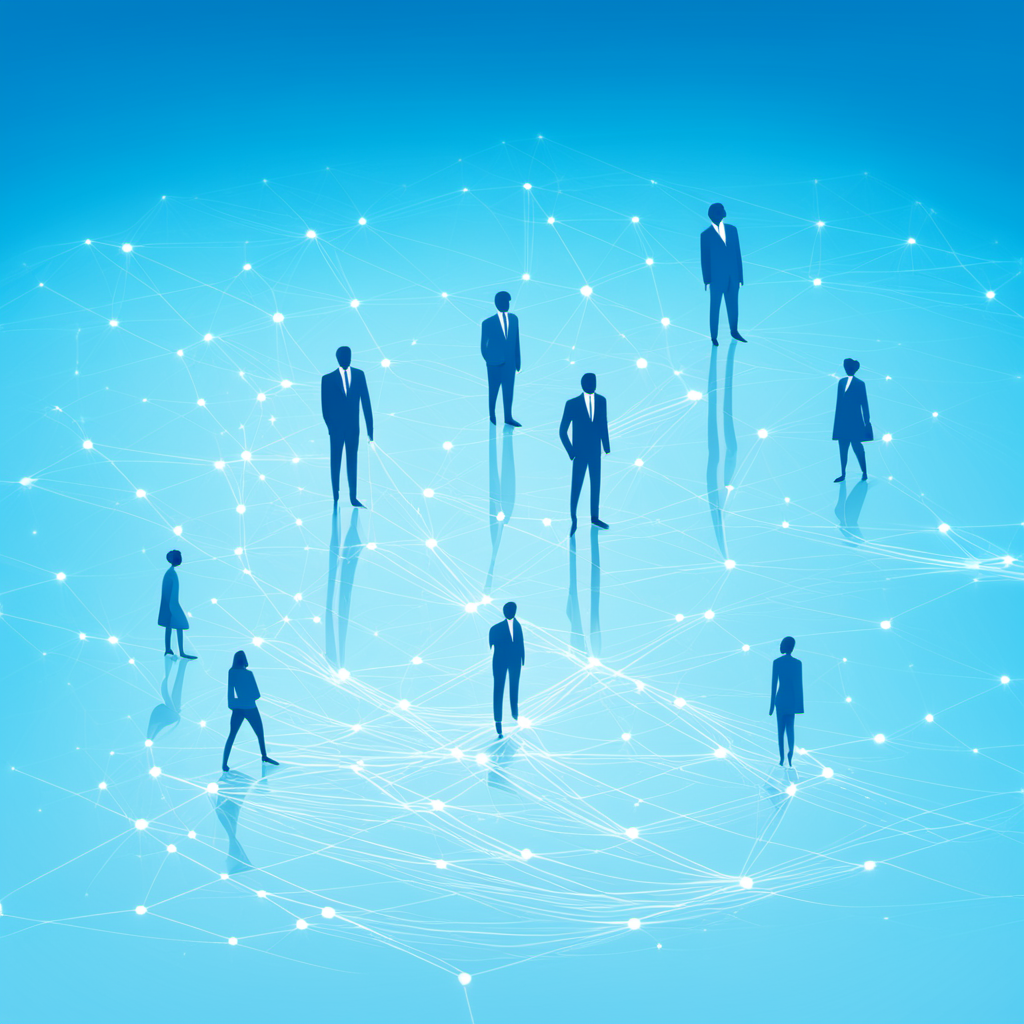AI Will Flatten Workforce Inequality—If We're Honest About What That Actually Means

Let's Start With What We're Not Saying Out Loud
Here's the thing nobody wants to admit at dinner parties: most of us are terrified that AI will reveal how replaceable we actually are. Not because machines are coming for our jobs—that's the sanitized version we tell ourselves—but because someone, somewhere, who didn't go to the right schools or know the right people, is about to do what we do, only better, faster, and without the institutional scaffolding we've been standing on.
I'm not exempt from this. I've benefited from access, from timing, from luck I prefer to call "hard work." And now I'm watching the ground shift.
The conversation around AI and employment is almost uniformly dishonest. The anxious think pieces worry about "displaced workers" while carefully avoiding the question: displaced from what, exactly? From positions they earned through genuine excellence, or from positions they inherited through networks, credentials, and the accumulated advantage of prior generations?
The Uncomfortable Truth About Merit
Let's be clear about something: I don't believe in pure meritocracy. It's a useful fiction, like "the free market" or "color-blind society"—concepts that describe an ideal while obscuring how power actually works. But I do believe that AI is going to stress-test our assumptions about merit in ways that make a lot of people extremely uncomfortable.
Because here's what's happening: the tools that used to require institutional access—computational power, specialized knowledge, distribution channels—are becoming absurdly cheap and accessible. A kid in rural India with internet access now has research capabilities that would have required a university library and a graduate degree thirty years ago. A self-taught developer can build applications that would have required a team of specialists a decade ago.
This isn't "obliterating privilege"—that's too clean, too simple. Privilege is adaptive. It finds new forms. The children of the wealthy will always have advantages: better nutrition, less stress, more time to experiment and fail safely, networks that open doors. But what's changing is the delta—the gap between what privilege provides and what raw capability plus determination plus newly accessible tools can achieve.
And that's what terrifies people, though we dress it up in other concerns.
What We Mean When We Say "Authenticity" and "Human Connection"
I keep seeing articles defending human workers by emphasizing qualities that AI allegedly can't replicate: creativity, empathy, authentic connection. And I think: who are we trying to convince?
Because here's the uncomfortable question: how many jobs actually required those qualities in the first place, and how many of us just convinced ourselves they did because it made us feel irreplaceable?
I'm not saying empathy and creativity don't matter—they matter immensely in specific contexts. But let's be honest about the administrative assistant role that involved 90% data entry, or the analyst position that was primarily reformatting PowerPoints, or the consultant gig that mostly meant applying the same framework to slightly different scenarios. We valorize these positions retroactively, claiming they required unique human qualities, when what they really required was access to the opportunity in the first place.
The people who are genuinely creative, who do form authentic connections, who solve novel problems—they're not afraid of AI. They're intrigued by it. The fear comes from somewhere else.

The Learning Problem Nobody Wants to Name
"Lifelong learning" has become this sanitized corporate phrase, but let me tell you what it actually means: admitting you don't know things. Constantly. Publicly. In a culture that punishes ignorance and mistakes.
I've watched extraordinarily smart people sabotage themselves rather than admit they need to learn something new. And I get it—I really do. When your identity is wrapped up in being "the expert," the person people come to, the one who knows... having to become a beginner again feels like death. Especially if you're in your 40s or 50s, especially if you've built a career on specific expertise that's suddenly less valuable.
But here's what I've noticed: the people who are thriving with AI aren't necessarily the most technically skilled. They're the ones who got comfortable with feeling stupid. They experiment, they fail, they ask what probably feel like dumb questions. They treat their ignorance as a temporary condition rather than a character flaw.
And this is where class and privilege intersect in fascinating ways. If you grew up with resources, you probably learned early that failure is survivable, that experimentation is encouraged, that not knowing something is just a problem to solve. If you grew up without resources, you might have learned the opposite: that mistakes are expensive, that you need to know things immediately, that asking questions reveals weakness that others will exploit.
AI's learning curve doesn't care about these backgrounds. But our ability to navigate it absolutely does.
The False Binary of Replacement vs. Augmentation
Every serious discussion about AI and work eventually arrives at this comforting dichotomy: AI won't replace workers, it will augment them. We'll all be cyborgs, human creativity plus machine capability, better together.
This is partially true and mostly evasive.
Yes, many people will use AI to enhance their productivity. But let's follow that logic: if I can do in one hour what used to take eight, what happens to the other seven people who were doing that work? They don't just magically get reassigned to "higher-value tasks." Maybe one person gets to do strategic work. Maybe another retrains for something different. But several people are just... not needed anymore.
And this is fine, actually—or it could be fine, if we were honest about it. Human history is full of jobs that disappeared. We don't have many elevator operators or switchboard operators anymore. Society adapted. But we adapted through upheaval, through labor movements, through collective bargaining and social safety nets and, yes, through conflict.
What frustrates me is the pretense that this transition will be smooth, that everyone willing to "learn and adapt" will find their place. That's not how disruption works. Disruption is violent and uneven. Some people will absolutely be left behind, and not because they refused to learn, but because the timing was wrong, the geography was wrong, the industry they bet on collapsed before they could pivot.
Acknowledging this doesn't make me a pessimist. It makes me someone who thinks we should be planning for the actual future rather than the sanitized version we wish were true.
What Actually Scares the "Elite" (And Why We Should Be Skeptical)
The original version of this post spent a lot of energy attacking "the elite" and their fear of democratization. I want to complicate that.
Yes, there are gatekeepers who benefit from artificial scarcity. Yes, there are people whose advantages are entirely structural rather than earned. Yes, credentialism is often a barrier that serves to replicate class hierarchies rather than identify genuine capability.
But here's what I've learned from actually talking to people in positions of power: most of them don't think of themselves as elite. They think of themselves as people who worked hard, made sacrifices, earned their position. And you know what? Many of them did. The scholarship kid who became a partner at the law firm worked incredibly hard. The first-generation college student who's now a VP worked incredibly hard.
The problem isn't that they didn't work hard. The problem is they often can't see—or won't see—that they also got lucky, that their hard work was necessary but not sufficient, that there are thousands of people who worked just as hard and didn't make it because the opportunity structure didn't align.
And now, when AI threatens to flatten some of those barriers, the cognitive dissonance is massive. Because admitting that someone without your credentials might do your job equally well feels like admitting that your achievements were... what? Less impressive? Less earned? It threatens the story you've told yourself about your life.
I have sympathy for this, even as I think it needs to be challenged. We're all trying to make meaning from our lives, to believe that our successes reflect something essential about us rather than fortunate circumstance. AI isn't just changing the job market—it's challenging our narratives about ourselves.

The Six Actually Useful Steps (Without the Macho Posturing)
Look, I could give you some aggressive list of "dominate or die" nonsense, but that's performative garbage. Here's what actually seems to help:
1. Get curious about your own resistance. When you feel defensive about AI or automation or change, pause. Ask yourself: what am I actually afraid of? Is it the technology, or is it what the technology might reveal about my position?
2. Experiment with low stakes. Don't wait until you "need" to learn AI. Play with it. Make it do stupid things. Break it. The point isn't to become an expert immediately—it's to demystify the tool and reduce your anxiety around it.
3. Separate your identity from your job title. This is hard, especially in American culture where "what do you do?" is the second question at every party. But your job is what you do for money. It's not who you are. Building identity outside of work makes transitions less existentially threatening.
4. Be honest about what you're actually good at. Not what your resume says. Not what you wish you were good at. What do you genuinely bring that creates value? Sometimes the answer is uncomfortable. Sometimes you discover you've been coasting on credentials or relationships. That's useful information, even if it stings.
5. Build actual community, not just networks. Networks are transactional—they're about what people can do for each other. Community is different. It's about mutual support through uncertainty. When things get disrupted, networks dissolve fast. Community is more resilient.
6. Advocate for systemic solutions while handling your personal situation. Yes, learn the tools. Yes, adapt. But also recognize that individual adaptation isn't enough. We need better social safety nets, more accessible retraining, healthcare not tied to employment, stronger labor protections. You can do both.
The Conversation We Should Be Having Instead
Here's what I actually think: AI is going to reveal how much of our economy was based on artificial scarcity and information asymmetry. It's going to show us how many jobs existed primarily because coordination was hard, or because knowledge was hoarded, or because we hadn't automated things that absolutely could be automated.
This could be devastating, or it could be liberating. The difference depends entirely on how we structure the transition.
If we let market fundamentalism guide us—if we just assume everyone will "find their place" and that creative destruction is always net positive—we're going to see massive suffering. People whose skills become obsolete, through no fault of their own, will be told they should have "seen it coming," should have "adapted faster," should have made better choices. This is cruel and ahistorical.
But if we're intentional—if we actually invest in transition support, if we experiment with things like universal basic income or job guarantees, if we reduce healthcare and housing costs so people have breathing room to retrain—then maybe we get something closer to the optimistic version. Where AI does handle the drudgery, where people do get to focus on more meaningful work, where opportunity genuinely becomes more accessible.
I don't know which future we'll get. I suspect it'll be messy and uneven, with some industries and regions adapting well while others collapse. What frustrates me is the lack of honest conversation about this. We get either techno-optimism that ignores real pain, or techno-pessimism that ignores real possibility.
What I'm Actually Afraid Of (And Why I'm Writing This)
I'm afraid that we'll waste this moment. That we'll spend so much energy defending our current positions—our credentials, our advantages, our sense of earned status—that we'll miss the chance to build something more equitable.
I'm afraid that people who genuinely deserve support will be dismissed as "resistant to change," while people who deserve scrutiny will hide behind claims of meritocracy.
I'm afraid that we'll replicate existing inequalities in new forms, that AI will become another tool for those with resources to multiply their advantages, rather than a leveling force.
But I'm also hopeful. Because I've seen what happens when tools get genuinely democratized. I've watched people without traditional credentials build extraordinary things. I've seen communities form around shared learning rather than gatekeeping. I've seen what's possible when we stop pretending that our advantages were entirely earned and start asking how we can extend opportunity more broadly.
This isn't about crushing anyone. It's about being honest about where we are and what's coming, so we can make better choices about where we go next.
The anger you might feel reading this—if you feel anger—is worth examining. What's it protecting? What's it defending? Is it proportional to the actual threat, or is it revealing something about assumptions you didn't know you'd made?
Because the future is coming regardless. The only question is whether we'll meet it with honesty or mythology, with solidarity or isolated self-interest, with genuine curiosity or defensive posturing.
I know which future I'm working toward.
Key Thoughts to Sit With
- Our fear of AI often isn't about the technology—it's about what the technology might reveal about how we got where we are
- Merit is real but never pure; acknowledging luck and advantage doesn't diminish genuine achievement
- The skills that matter most may be psychological: comfort with uncertainty, willingness to be a beginner, honest self-assessment
- Individual adaptation is necessary but insufficient; we need systemic solutions for systemic disruption
- The question isn't whether AI will change work—it's whether we'll be honest enough to navigate that change justly

Questions Worth Wrestling With
Is AI really democratizing opportunity, or just creating new forms of inequality?
Both, probably. Access to tools is spreading, but capability to use those tools effectively is still shaped by prior advantages. The question is whether the net effect is more or less equitable than what came before.
How do I learn AI skills if I'm already overwhelmed?
Start smaller than you think necessary. Ten minutes a day. One tool. One capability. The overwhelm is real, but it's often worse in anticipation than in practice. Also: be selective. You don't need to learn everything. Focus on what's relevant to problems you actually care about.
What if I'm too old/too far behind/too non-technical?
These are legitimate concerns, not character flaws. Age discrimination is real. Opportunity costs are real. But I'd encourage you to question whether these are actual barriers or internalized beliefs shaped by how others have treated you. Many people have learned substantial new skills later in life. It's harder, yes. Impossible? No.
Don't we lose something important when we automate work?
Definitely. The question is what. We lose the particular rhythms and relationships of existing work. We lose jobs that, for all their flaws, provided stability and identity. But we also potentially lose drudgery, unnecessary hierarchies, artificial scarcity. It's not simple.
How do we protect workers during this transition?
Politically. Collectively. Through policy and organizing, not just individual action. Stronger safety nets, retraining programs that actually work, healthcare reform, experimentation with alternative economic models. This requires sustained political engagement, not just personal optimization.
If this resonated, I'd love to hear why—and especially if it made you angry, I'd love to hear what it surfaced. You can find me at danielkliewer.com where I'm trying to figure out this stuff alongside everyone else.